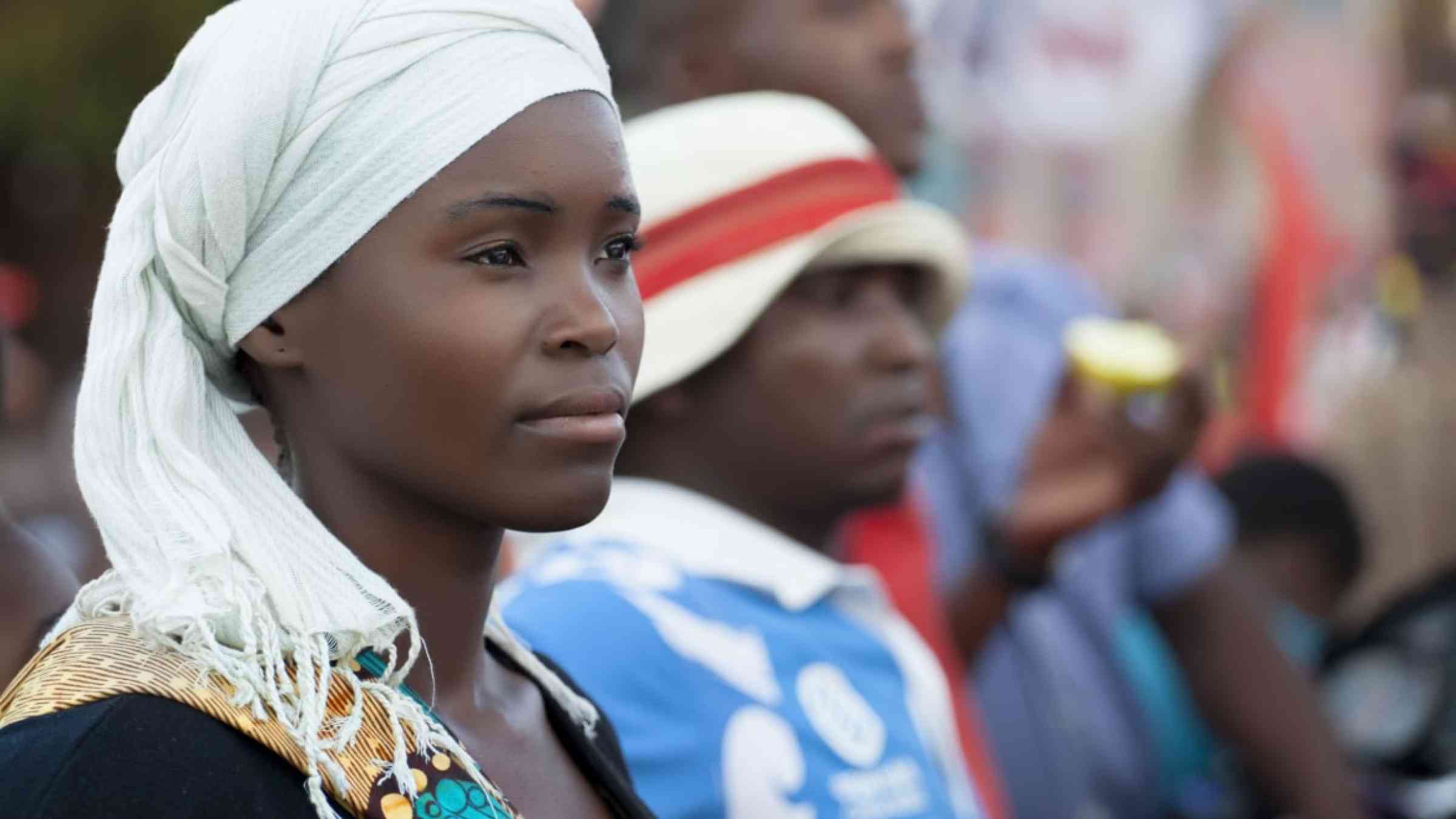New data shows benefit of sending cash ahead of climate disasters, says IRC

- IRC research highlights that cash-based anticipatory action can help recover from, and build resilience to, climate disasters in fragile settings affected by both conflict and climate change.
- With continued extreme weather events worldwide, El Niño, and the approaching COP-28 summit, the IRC calls on international donors to not leave the most vulnerable countries behind in climate financing, especially when many disasters are predictable
The IRC today released results of one of the first rigorous evaluations on the impact of anticipatory cash ahead of predictable climate disasters in Northeast Nigeria - calling on donors and humanitarian actors to urgently prioritize these interventions for countries at the frontline of the climate crisis in the lead-up to COP28.
IRC’s research - the first experimental evidence from a randomized controlled trial (RCT) on how anticipatory cash compares to post-shock cash transfers in a conflict-affected environment* - highlights that anticipatory action is critical to meeting the short- and longer-term needs of households affected by both climate and crisis, especially as climate shocks continue to worsen and humanitarian funding needs remain unmet for both emergencies and preventative responses.
With funding from Google.org and in partnership with the International Food Policy Research Institute (IFPRI) and the Center for Disaster Protection, the IRC piloted and evaluated the effects of early warning systems and anticipatory cash interventions to protect the livelihoods of households in flood-prone areas in the northeastern state of Adamawa, Nigeria.
Key takeaways from the pilot include:
- Households that received cash transfers before the flood were less hungry and used significantly fewer negative coping strategies, such as reducing meals, than they had before the transfers, compared to those who received cash after.
- The cash transfer had a significant impact on the number of pre-emptive actions taken by households to protect economic livelihoods in anticipation of flood shocks, such as harvesting crops early, stockpiling food, and evacuating households.
- Households that received anticipatory cash increased income-generating investments in agricultural assets and livestock, on average - suggesting that anticipatory cash can help build long-term resilience capacity. A higher percentage (57%) of households that received cash transfers before the flood invested in productive assets than those who received cash after (44%).
- Costs per household for pre-flood and post-flood transfers suggest that anticipatory cash can be as cost-efficient as business-as-usual humanitarian aid, especially for larger-scale and longer-term programs.
Based on IRC’s research across the sector - in which IRC does 30% of all impact evaluations - the IRC is calling for a switch-spend of humanitarian assistance. Approximately 20% of natural disasters are highly predictable, but less than 1% of overseas development assistance (ODA) is pre-arranged towards these efforts. The IRC calls on international donors to emulate the German government’s commitment of 5% of humanitarian funding going towards preventative response ahead of climate shocks, while improving financing to be multi-year, flexible, and adaptive.
For too long climate and humanitarian efforts have been disjointed. With the continued onslaught of extreme weather events worldwide, El Niño, and the approaching COP-28 summit, the climate and humanitarian community must work together to:
- Ensure that the most vulnerable communities are not left behind by developing better tools for risk mappingthat identifies sudden climate shocks and long-term climate trends. New tools for assessing risk must account for how incoming climate shocks will be exacerbated by the unique needs of fragile settings, such as conflict dynamics, societal fractures, and the local political economy.
- Increase climate financing to devotemore resources for adaptation in climate and conflict-affected countries. 90% of climate financing has focused on middle-income, high-emission producing countries, and effectively ignores the poorest states.
- Adopt a “people-first” to climate action by creating better delivery mechanisms. Traditional ways of delivering support in stable settings rely on national governments, who often lack the capacity to deliver climate support, or are sometimes involved in combat themselves. A “people-first” strategy should look for other entities - civil society, NGOs, local actors - to deliver climate interventions.
- Invest in innovation to develop climate solutions that are specifically designed for the unique needs of conflict and crisis settings. Donors and leaders need to commit to the testing and scaling of the right innovations, such as anticipatory action, that effectively insulate people against cycles of violence, displacement, and under-development, which are all exacerbated by the climate crisis
Babatunde Anthony Ojei, Country Director of IRC Nigeria, said:
“Nigeria is one of the most vulnerable countries in the world to climate disasters, including devastating flooding. With this pilot, IRC in Northeast Nigeria helped protect our clients against the impacts of a predictable climate shock - helping them recover and build resilience for the future. There is no excuse for waiting for disaster to strike and forcing vulnerable communities to make up for lost time.”
Sarah Case VP of Humanitarian System Change said:
“At the moment, aid is distributed more for the convenience of donors rather than the convenience of recipients. Climate change is here today, not tomorrow, and the humanitarian system is not fit for purpose. It’s a scandal that we wait for disasters to strike, when we have the technology to predict them and the research to prove that giving cash in advance protects lives and livelihoods. Donors must take advantage of windows of opportunity for anticipatory action particularly in countries already living the reality of extreme weather, preventing predictable climate shocks from becoming preventable climate catastrophes.”